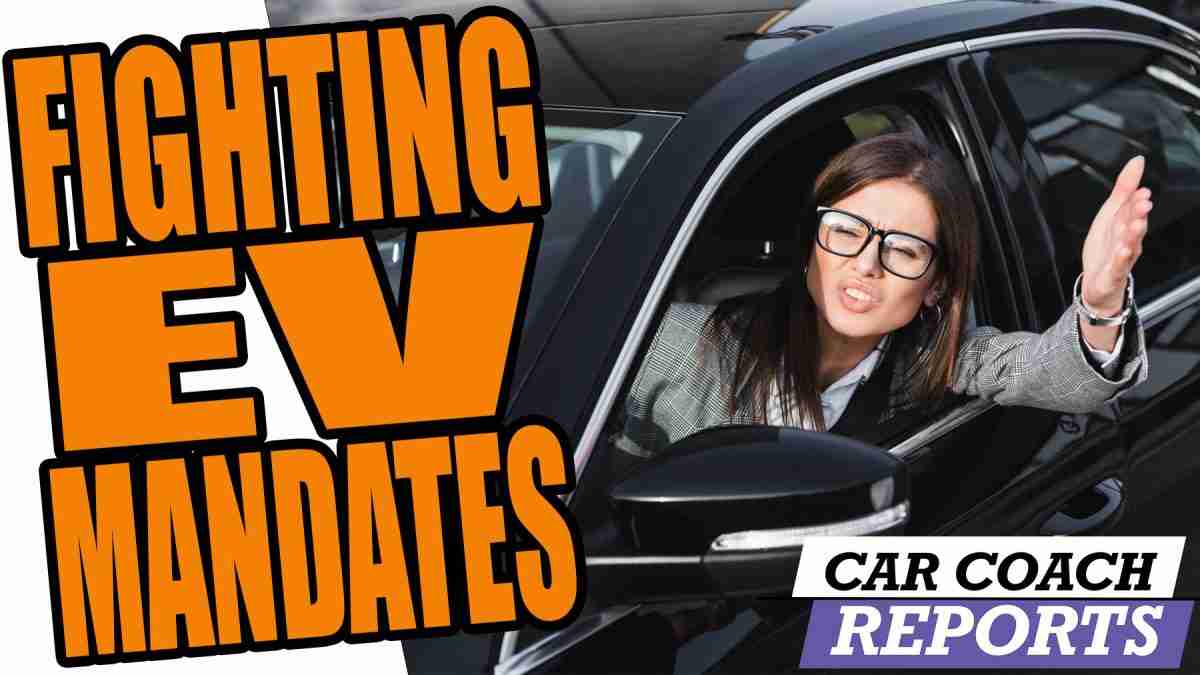Dealerships Step Up Opposition To Electric Vehicle Regulations

Table of Contents
Financial Concerns Driving Dealership Opposition to Electric Vehicle Regulations
The transition to EVs presents significant financial challenges for dealerships, prompting much of their opposition to current electric vehicle regulations. These challenges stem from reduced profit margins and the substantial investment required for infrastructure upgrades.
Reduced Profit Margins
EVs, while environmentally friendly, generally require less frequent maintenance than internal combustion engine (ICE) vehicles. This directly impacts a significant revenue stream for dealerships.
- Fewer service and repair needs: EVs have fewer moving parts, resulting in less frequent oil changes, tune-ups, and other routine maintenance.
- Higher initial inventory costs: The upfront cost of acquiring EVs is often higher than for ICE vehicles, tying up more dealership capital.
- Reduced parts sales: The simpler mechanics of EVs translate to fewer parts replacements and sales compared to ICE vehicles.
- Government support inadequacy: While some government programs aim to support the transition, many dealerships feel these initiatives fall short of offsetting the financial burdens. For example, rebates for consumers may not adequately compensate for decreased service revenue.
These factors combine to create significantly reduced profit margins, particularly impacting smaller dealerships with limited financial resources.
Investment in Infrastructure
Adapting to the EV era necessitates considerable investment in infrastructure upgrades for dealerships. This poses a substantial barrier to entry for many, especially smaller operations.
- Charging station installation: Installing Level 2 and potentially Level 3 charging stations requires significant capital expenditure and expertise.
- Specialized EV repair equipment: Dealerships need specialized tools and diagnostic equipment to service EV batteries, high-voltage systems, and other unique components.
- Technician training facilities: Investment in training facilities and resources is needed to upskill existing technicians and onboard new specialists.
- Lack of government incentives: The absence of sufficient government incentives for infrastructure upgrades further exacerbates the financial strain on dealerships. The return on investment (ROI) for these upgrades is often uncertain, adding to the reluctance of many dealerships to make the necessary investments.
Training and Expertise Gaps Related to Electric Vehicle Regulations
The complexities of EV technology necessitate significant investment in training and upskilling for dealership staff. This presents another key challenge contributing to opposition to electric vehicle regulations.
Need for Specialized Technician Training
Servicing EVs requires a specialized skill set and certification that many existing technicians lack. This necessitates costly and time-consuming training programs.
- High-voltage safety training: Working with high-voltage systems necessitates rigorous safety training to avoid accidents.
- Battery system diagnosis and repair: Diagnosing and repairing EV batteries requires specialized knowledge and tools.
- Software updates and diagnostics: EVs rely heavily on software, requiring technicians to be proficient in diagnostics and software updates.
- Technician shortage: A current shortage of qualified EV technicians exacerbates the problem, making it difficult for dealerships to find and retain skilled labor.
Navigating Complex EV Technology
The rapid pace of innovation in EV technology demands continuous learning and adaptation for dealership staff, creating significant training burdens.
- Battery technology advancements: Dealerships need to keep up with the constantly evolving battery technologies and their associated maintenance requirements.
- Charging system complexities: Understanding various charging systems, protocols, and their potential issues is crucial.
- Software and onboard systems: The sophisticated software systems in EVs require specialized knowledge for troubleshooting and repair.
- Impact on sales process: The sales process itself needs adjustment to effectively communicate the features and benefits of EVs to potential buyers.
Concerns Over Government Mandates and EV Adoption Rates
The uncertainty surrounding government mandates and consumer demand further fuels dealership concerns regarding electric vehicle regulations.
Phased-Out ICE Vehicle Sales
Government mandates phasing out ICE vehicle sales create anxieties about the future viability of dealerships' current business models.
- Inventory devaluation: Dealerships risk significant losses on unsold ICE vehicles as government regulations reduce demand.
- Transitional challenges: The shift from ICE vehicles to EVs requires significant operational adjustments and potential redundancies.
- Impact on business valuations: The uncertainty surrounding the future of ICE vehicles can negatively impact the valuation of dealerships.
- Lack of clear transition plans: Many dealerships feel that clear and supportive transition plans from government are lacking.
Consumer Demand Uncertainty
Uncertainties surrounding consumer adoption rates for EVs impact investment decisions on infrastructure and training.
- Market saturation concerns: Dealerships fear overstocking EVs if consumer demand fails to materialize as expected.
- Range anxiety and charging infrastructure: Consumer hesitancy due to range anxiety and limited charging infrastructure remains a significant factor.
- High purchase prices: The relatively higher initial cost of EVs compared to ICE vehicles remains a barrier to wider adoption.
- Market research limitations: The unpredictable nature of consumer behavior and adoption rates makes accurate forecasting difficult, impacting investment decisions.
Conclusion
Dealerships play a vital role in the successful transition to electric vehicles. However, the financial burdens, training requirements, and uncertainties surrounding government mandates and consumer demand create significant challenges. Addressing these concerns through collaboration between policymakers, manufacturers, and dealerships is crucial for a smooth and successful transition to a sustainable automotive future. Open dialogue and the development of supportive policies that mitigate the financial and operational risks faced by dealerships are essential to fostering widespread adoption of electric vehicles and achieving climate goals. Addressing the concerns surrounding electric vehicle regulations, including financial incentives, infrastructure support, and comprehensive training programs, is vital for the future of the automotive industry.

Featured Posts
-
 Man United And Arsenal Battle For Matheus Cunha Signing
May 20, 2025
Man United And Arsenal Battle For Matheus Cunha Signing
May 20, 2025 -
 Landlord Price Gouging Following La Fires A Selling Sunset Perspective
May 20, 2025
Landlord Price Gouging Following La Fires A Selling Sunset Perspective
May 20, 2025 -
 Transfert De Melvyn Jaminet Les Revelations De Kylian Jaminet Sur L Affaire
May 20, 2025
Transfert De Melvyn Jaminet Les Revelations De Kylian Jaminet Sur L Affaire
May 20, 2025 -
 Zirka Gollivudu Dzhennifer Lourens Stala Mamoyu Vdruge
May 20, 2025
Zirka Gollivudu Dzhennifer Lourens Stala Mamoyu Vdruge
May 20, 2025 -
 Nyt Mini Crossword Puzzle Answers For March 31
May 20, 2025
Nyt Mini Crossword Puzzle Answers For March 31
May 20, 2025
